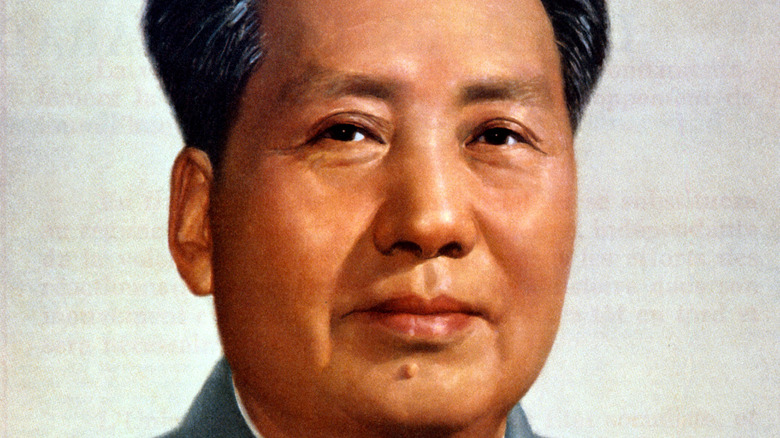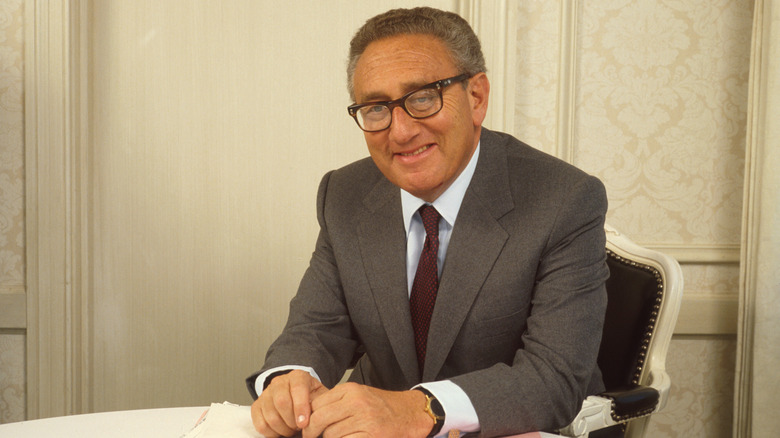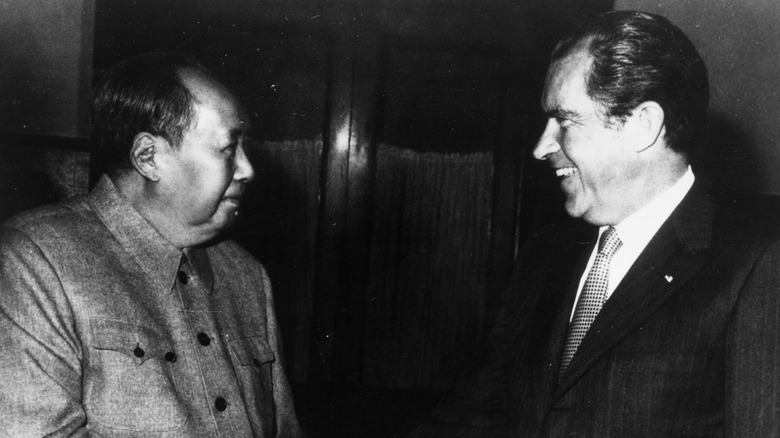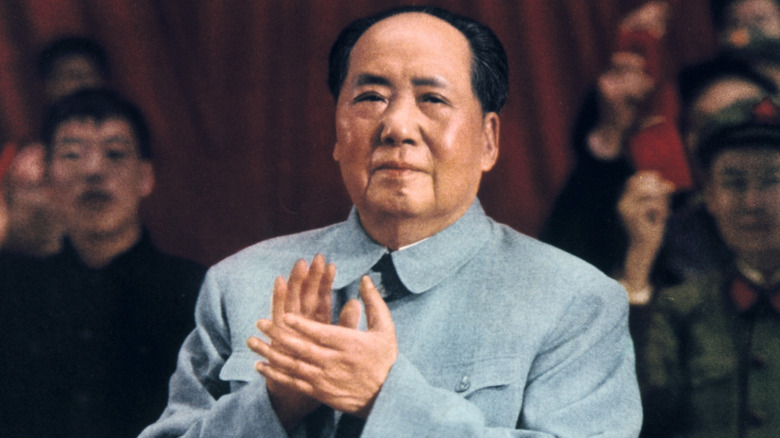Why Mao Zedong Once Offered Up Millions Of His Own Citizens To Henry Kissinger
Mao Zedong and Henry Kissinger both played major roles in the shifting international landscape of the 20th century. It was a century defined by two devastating World Wars, the rise of Communism, and the Cold War that kept the threat of nuclear war a constant presence.
Mao was the leader of the Chinese Communist Party (CCP) from 1935 until his death in 1976 and was one of the central figures in the communist revolution that led to the formation of the People's Republic of China (via Britannica). In 1949, the CCP, led by Mao, overthrew the Nationalist government and took power, with Mao assuming the role of chairman of the state (via Britannica). Mao's reign of power was filled with mixed results. He did lead the cultural and technological revolution that would allow China to emerge as an international power, but he often did it through violent means that led to the deaths of many. Two of Mao's major plans, the Great Leap Forward, which ended in widespread famine that killed millions, and the Cultural Revolution, which ended with Mao executing or detaining many political adversaries, were abject failures (via Britannica). Despite his failures Mao would remain in power until his death and thus continued to play a major role not only in China, but also on an international scale.
International players
Henry Kissinger was born in 1923 in Germany and came to America in 1938 when his family fled from the Nazi party (via History). After serving in World War II, Kissinger would go on to study at Harvard, receiving both his B.A. and Ph.D. there, before becoming a professor of government at Harvard (via Britannica). This would lead to Kissinger developing a career in politics and ultimately playing a major role in America's international diplomacy. President Richard Nixon appointed Kissinger as both head of the National Security Council (1969-1975) and Secretary of State (1973-1977) (via History). One of Kissinger's major plans was the reopening of relations between the United States and China. The two countries hadn't had official contact since Mao's communist party rose to power in 1949 (via Britannica).
Both Mao and Kissinger would play major roles in the reopening of official relations between the United States and China. Due to this it's not a surprise that the two men met in person multiple times. What is surprising, however, is one of the topics that was brought up by Mao in a 1973 meeting; the exportation of millions of Chinese women to the U.S. (via the U.S. State Department's Office of the Historian).
A unique offer
In 1973, Kissinger went to Beijing to meet with Mao and other leaders in the Chinese government to discuss reestablishing diplomatic relations between the two countries. Mao had another idea in mind. According to the transcript of the meeting from The Office of the Historian, Mao said, "The trade between our two countries at present is very pitiful. It is gradually increasing. You know China is a very poor country. We don't have much. What we have in excess is women." Mao would go on to say, "So if you want them we can give a few of those to you, some tens of thousands" (via The Office of the Historian).
It is unclear the degree of seriousness of Mao's proposal. The official transcript notes that although there was laughter following Mao's offer, he brings up the topic multiple times throughout the meeting. At one point he ups the offer to 10 million women (via The Office of the Historian). Again this was met with laughter. To his credit, Kissinger attempted to bring the meeting back to its original purpose, saying, "Our interest in trade with China is not commercial. It is to establish a relationship that is necessary for the political relations we both have" (via The Office of the Historian).
Mao's reasoning
Mao was not one to shy away from any solution he thought would improve China, but it's extreme, even for him, to offer up his country's women as a trading chip. He did, however, attempt to explain the reasoning behind the offer. Mao said, "By doing so we can let them flood your country with disaster and therefore impair your interests. In our country we have too many women, and they have a way of doing things. They give birth to children and our children are too many" (via The Office of the Historian). Mao would add that doing so would "lessen our burdens" (via The Office of the Historian).
The laughter that follows Mao's proposal every time he brings it up make it appear that he could be joking, but the consistency with which he brought it up and Mao's penchant for extremes leave it unclear. What is clear is that nothing ever came of Mao's proposal. According to the Council on Foreign Relations, official diplomatic relations would not be established until 1979, after Mao's death and Kissinger's departure from his role as secretary of state.



